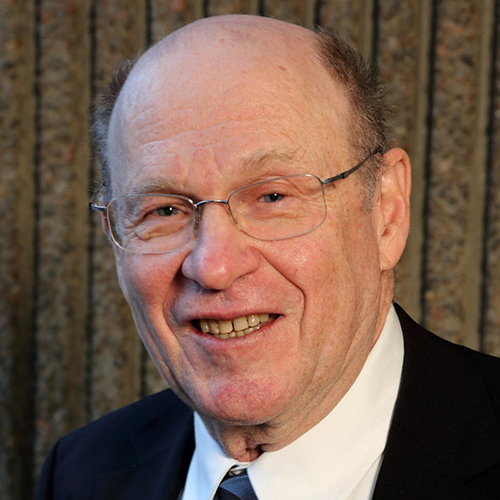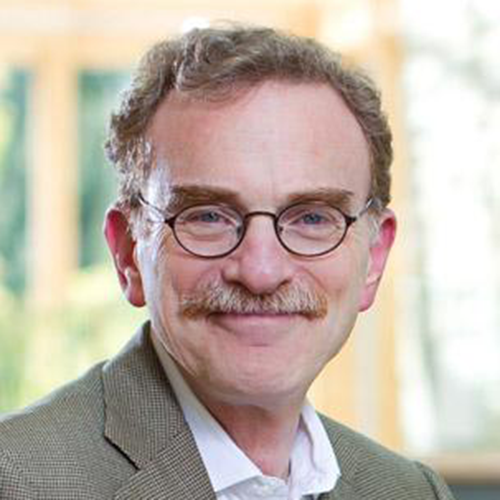Sonenberg receives honorary degree; Schekman joins Eureka science board
Sonenberg receives honorary doctorate
The institut national de la recherche scientifique in Quebec awarded an honorary doctorate to McGill University biochemist Nahum Sonenberg during the INRS virtual graduation ceremony in November.

Sonenberg holds the Gilman Cheney chair in the department of biochemistry and the Goodman Cancer Research Centre at McGill. He earned his Ph.D. in biochemistry from the Weizmann Institute of Science in 1976 and held a Chaim Weizmann postdoctoral fellowship at the Roche Institute of Molecular Biology before joining McGill University in 1979.
The Sonenberg lab’s primary research is on the translational control of protein synthesis. His work has led a number of breakthroughs including the discovery of the mRNA 5' cap-binding protein, eIF4E, the rate-limiting component of the eukaryotic translation apparatus. eIF4E overexpression is prominent in many cancers, suggesting its utility as a tumor marker and anti-cancer drug target. The lab now works on translational control in cancer, oncolytic viruses as anti-cancer drugs, microRNA control of translation, and translational control of plasticity, learning and memory, and brain disease.
Sonenberg is a foreign associate of the National Academy of Sciences, an international member of the National Academy of Medicine and an international honorary member of the American Academy of Arts and Sciences. He has received the Killam Prize in Health Sciences, the Robert L. Noble Prize from the National Cancer Institute of Canada, the Wolfe Prize in Medicine, the Rosenstiel Award, the McLaughlin Medal of the Royal Society of Canada, the Order of Canada, and the Canada International Gairdner Award.
“Dr. Sonenberg's significant contribution to biomedical research and to advancing knowledge on a variety of diseases is undeniable,” Luc-Alain Giraldeau, INRS director general, stated in a press release. “His inspiring career, marked by major discoveries, has revolutionized today's medicine and deserves the highest honors."
Schekman joins Eureka Therapeutics scientific board
Randy Schekman, a professor at the University of California, Berkeley, and an investigator with the Howard Hughes Medical Institute, has joined the scientific advisory board of clinical-stage biotechnology company Eureka Therapeutics.

Schekman shared the Nobel Prize in physiology or medicine in 2013 for discoveries of machinery regulating vesicle traffic, particularly his work that began in the 1970s to characterize the yeast secretory pathway. His lab subsequently discovered a protein complex key for vesicle budding, called COPII. He is also widely known for founding the journal eLife in 2012 and for his continued calls for publishing reform and open science.
In recent years, Schekman’s lab has continued to characterize the formation and trafficking of vesicles, paying particular attention recently to extracellular vesicles that contain small RNAs and to the molecular mechanisms of autophagy.
Schekman’s honors include the Lewis S. Rosenstiel Award in basic biomedical science, the Gairdner International Award, the Eli Lilly Award in Microbiology from the American Society for Microbiology, and the Albert Lasker Award in Basic Medical Research. He is a member of the National Academy of Sciences and the American Academy of Arts and Sciences.
Eureka Therapeutics was founded in San Francisco in 2006 by industry veteran Cheng Liu, who previously worked in antibody therapeutics at a company now owned by Novartis. Liu, who earned his Ph.D. at UC Berkeley, said in a press release that he and Schekman have known each other for over 20 years. Eureka Therapeutics develops T-cell therapies to target cancer cells, with particular focus on solid cancers.
Enjoy reading ASBMB Today?
Become a member to receive the print edition four times a year and the digital edition monthly.
Learn moreGet the latest from ASBMB Today
Enter your email address, and we’ll send you a weekly email with recent articles, interviews and more.
Latest in People
People highlights or most popular articles

2026 ASBMB election results
Meet the new Council members and Nominating Committee member.

Simcox wins SACNAS mentorship award
She was recognized for her sustained excellence in mentorship and was honored at SACNAS’ 2025 National Conference.

From humble beginnings to unlocking lysosomal secrets
Monther Abu–Remaileh will receive the ASBMB’s 2026 Walter A. Shaw Young Investigator Award in Lipid Research at the ASBMB Annual Meeting, March 7-10 in Washington, D.C.

Chemistry meets biology to thwart parasites
Margaret Phillips will receive the Alice and C. C. Wang Award in Molecular Parasitology at the ASBMB Annual Meeting, March 7-10 in Washington, D.C.

ASBMB announces 2026 JBC/Tabor awardees
The seven awardees are first authors of outstanding papers published in 2025 in the Journal of Biological Chemistry.

Decoding how bacteria flip host’s molecular switches
Kim Orth will receive the Earl and Thressa Stadtman Distinguished Scientists Award at the ASBMB Annual Meeting, March 7–10, just outside of Washington, D.C.
